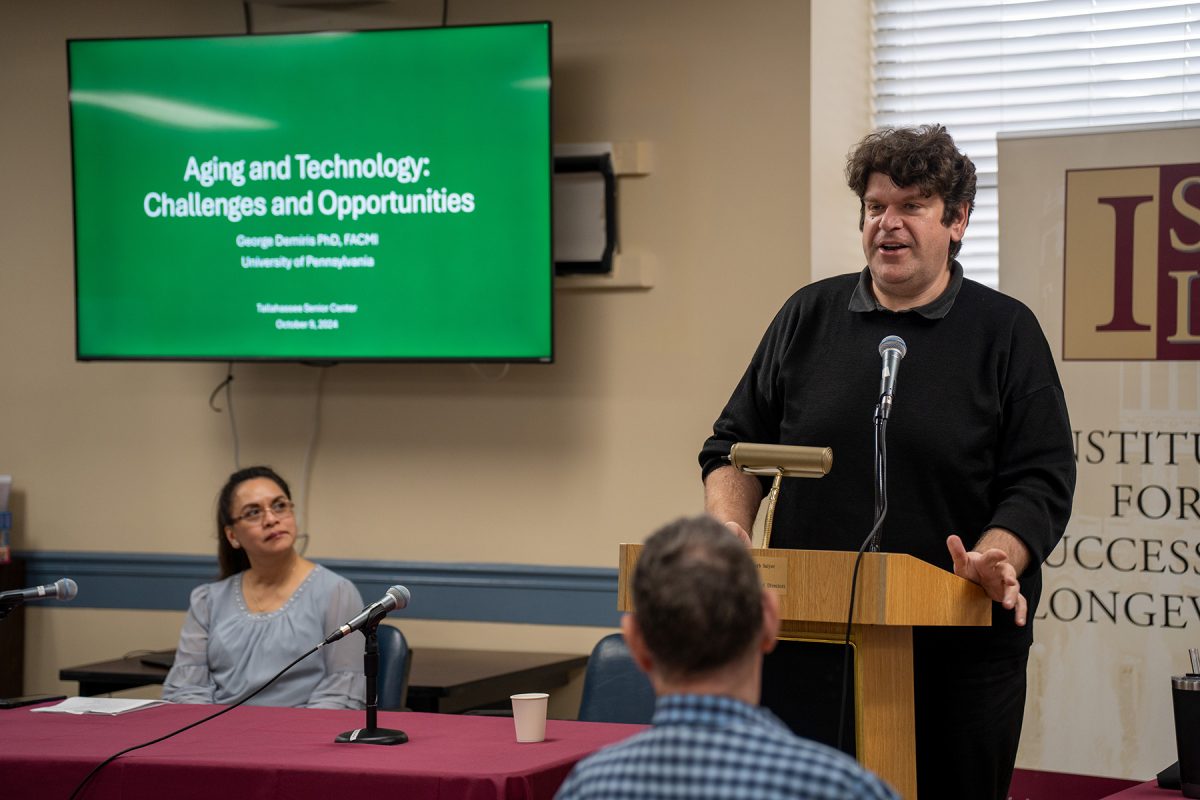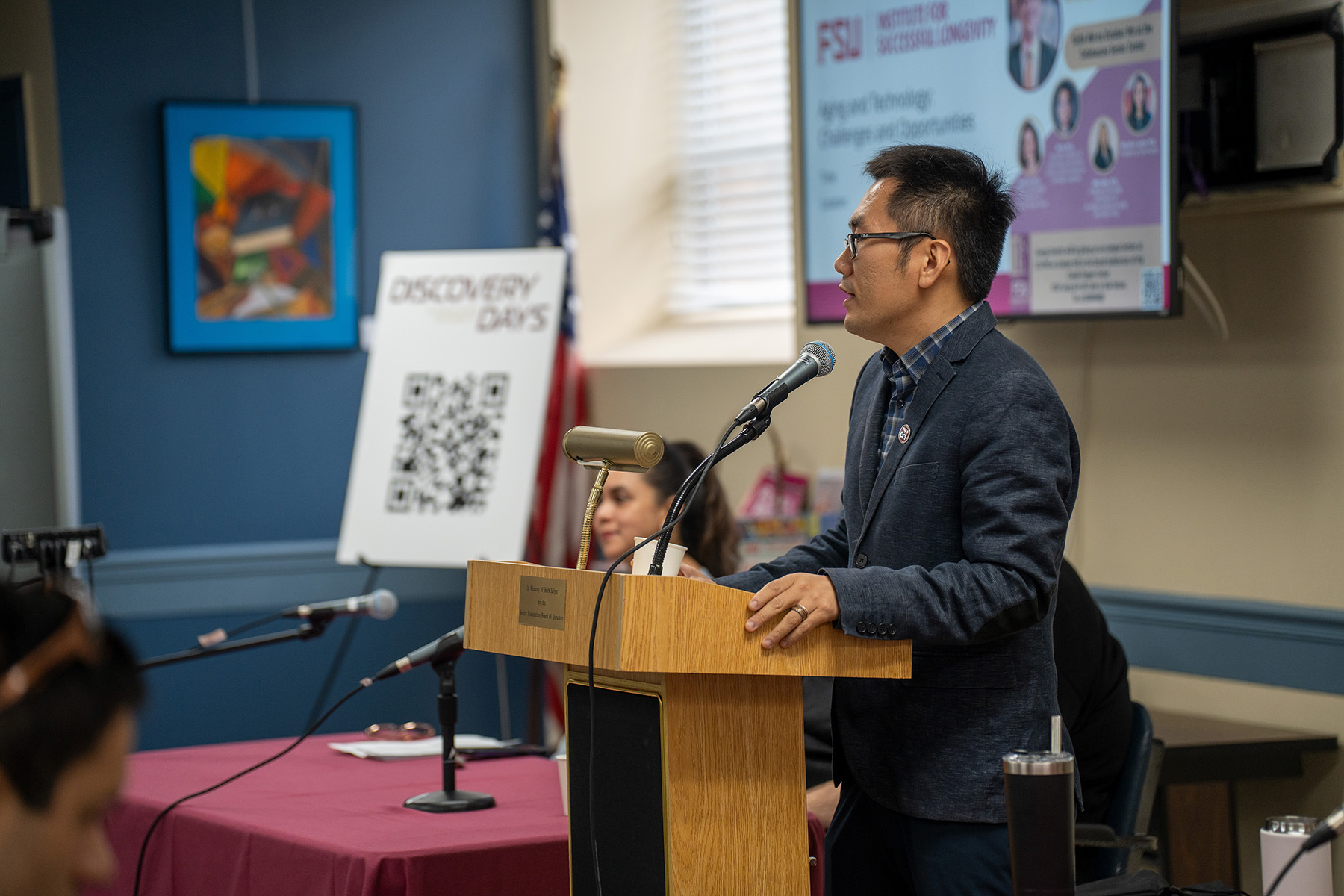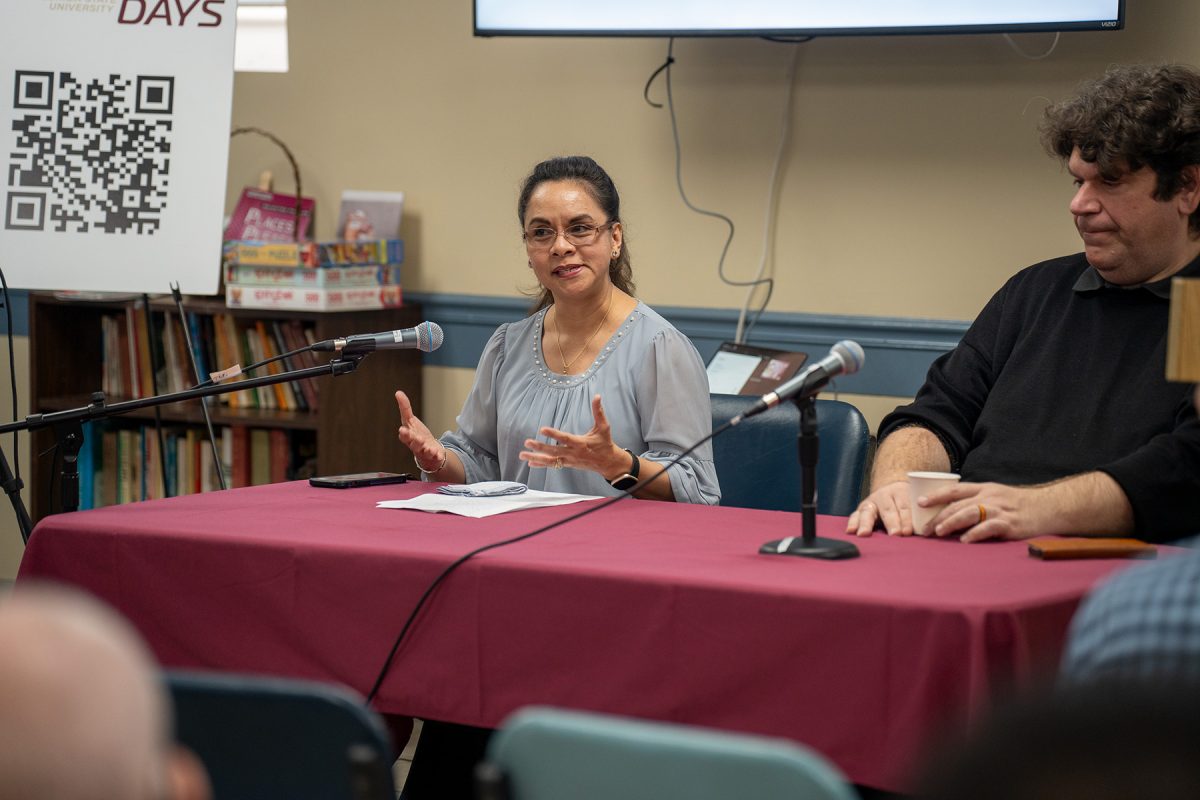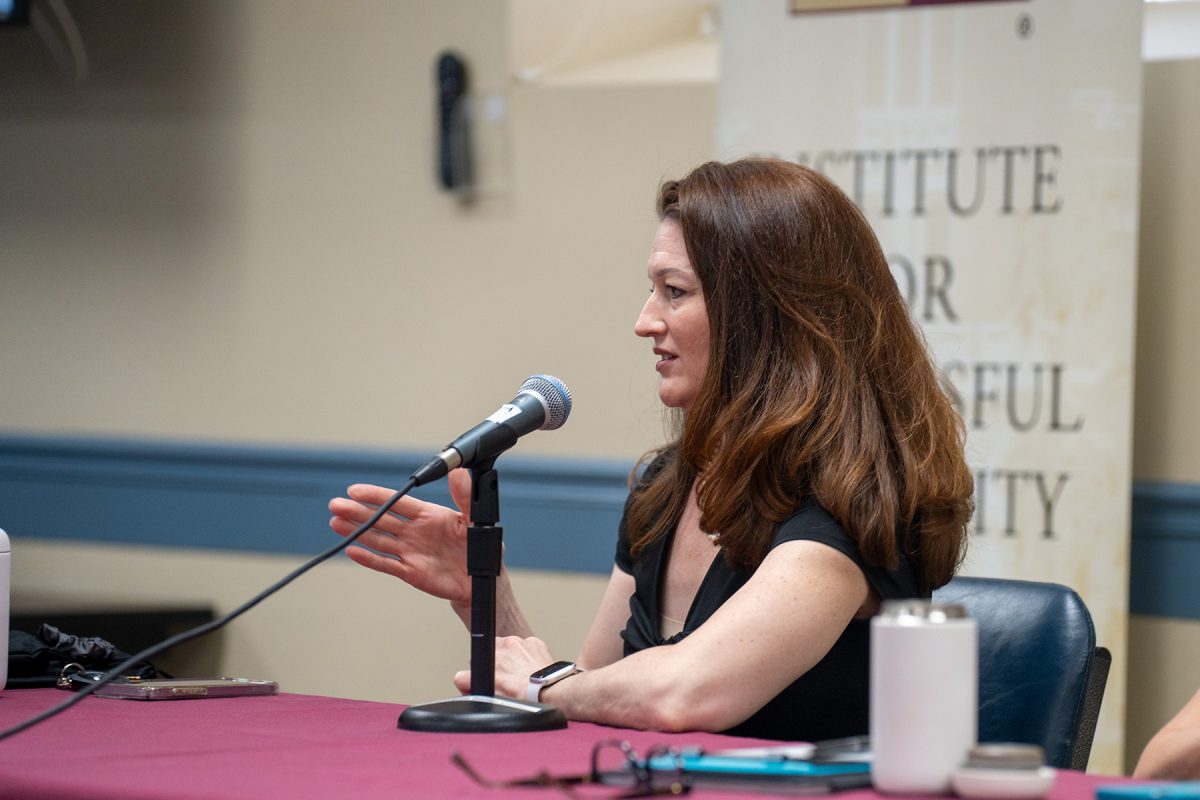
Florida State University researchers and a guest speaker from the University of Pennsylvania considered the challenges and opportunities that technology and artificial intelligence present for aging populations in holistic health care during a panel discussion hosted by the FSU Institute for Successful Longevity.
The Oct. 9 event, held at the Tallahassee Senior Center, was part of FSU Discovery Days, a week that celebrates FSU research, creativity and innovation.
"Events like this allow us to connect directly with the community, hear their perspectives and better understand their needs," Interim Director of the ISL Zhe He said. "Technology can enhance the quality of life for older adults, but it's essential that we address their unique challenges and concerns. This event is not just about showcasing advancements - it's about ensuring that innovations in technology are accessible, user-friendly and aligned with the real needs of the people we aim to support."

Special guest George Demiris, the Mary Alice Bennett University Professor and Penn Integrated Knowledge University Professor at the University of Pennsylvania, kicked off the event with his talk "Aging and Technology: Challenges and Opportunities." Demiris highlighted research focusing on the various ways technology can support aging in place while addressing issues such as social isolation and health monitoring.
Demiris spoke about how artificial intelligence and wearable smart technology can be integrated into smart homes, allowing health care providers and family to collect integral health information about aging patients that can be used to help monitor behavior and health patterns seamlessly and unobtrusively.
"This technology can help us understand how someone is living in their own home," Demiris said. "We can see if someone becomes more restless at night, or that they move around more or less frequently in their own home."
This kind of data collection can provide care teams with the information to create tailored, holistic care plans to best fit the needs of each patient.
Following Demiris' talk, he joined the panel of FSU researchers including He, Director of FSU's Claude Pepper Center and Associate Professor of Sociology Dawn Carr, FSU Professor of Information Mia Liza A. Lustria and Professor of Sociology and Director of the Pepper Institute on Aging and Public Policy Miles Taylor.
The panel answered questions posed by community members surrounding data collection integrity, levels of patient care and current research.
"We need to recognize that aging is diverse, and technology must be adaptable to meet the unique needs of each individual," He said.
Later in the day, Demiris also gave the talk "Artificial Intelligence and Aging: Examples and Lessons Learned" at FSU's Claude Pepper Center.
The FSU panelists are part of a research team awarded a $1 million grant earlier this year from the U.S. Department of Health and Human Services' Agency for Healthcare Research and Quality (AHRQ) to develop LabGenie, a tool to help older patients better understand the results of medical lab health tests.
FSU Discovery Days events continue through Saturday, Oct. 12. For the full calendar of events, visit discoverydays.fsu.edu.








